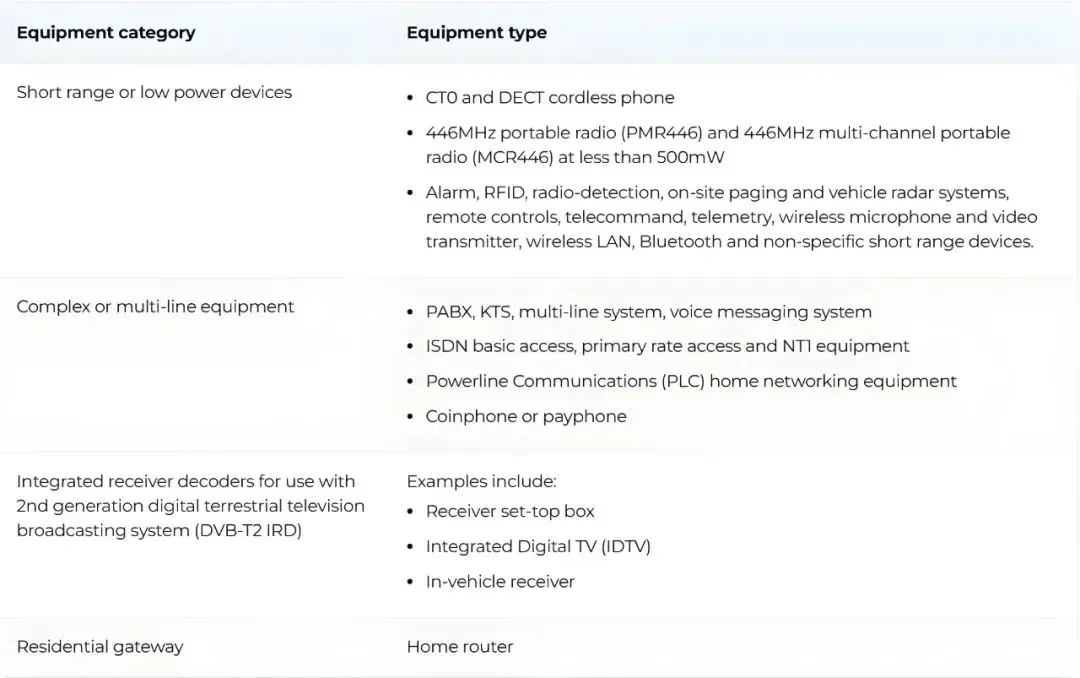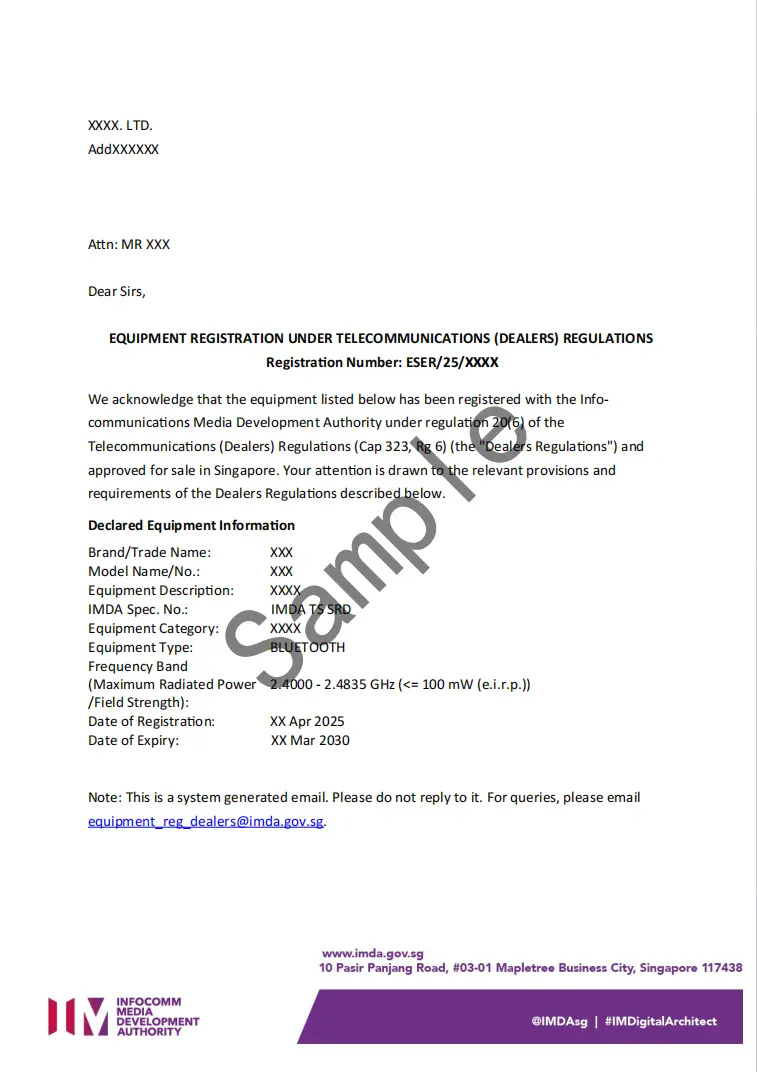
Singapore IMDA Regulations
Organizational Background
The Infocomm Media Development Authority (IMDA)was established through the restructuring and merger of the former Infocomm Development Authority of Singapore (IDA)and Media Development Authority of Singapore (MDA). IMDA serves as the unified regULatory body overseeing both telecommunications and media equipment in Singapore.
Registration Nature
All wireless communication devices, telecommunication terminal equipment, information technology equipment, and multimedia devices that are sold or used in Singapore must be registeRED with IMDA. This ensures compliance with technical standards relating to electromagnetic compatibility (EMC), electrical safety, and radio frequency spectrum management, thereby safeguarding network security and user safety.
Product Scope Covered by IMDA Regulations
Devices requiring registration include:
1. Wireless communication devices:Mobile phones, Wi-Fi routers, Bluetooth devices, 4G/5G terminals, drone remote control systems
2. Telecommunication terminals:Landline phones, modems, switches
3. Information technology equipment:Servers, computers, network equipment (routers, fiber optic devices)
4. Multimedia devices:Digital TV set-top boxes, broadcast receiving equipment

IMDA Regulations Application Process
1️⃣ Confirm Product Category & Registration Type
Select the appropriate registration scheme based on the type of equipment:
1. Simplified Equipment Registration (SER):For consumer electronics such as mobile phones, routers
2. Enhanced Simplified Equipment Registration (ESER):For short-range devices such as Bluetooth, RFID, wireless MICrophones
3. General Equipment Registration (GER):For professional equipment such as base stations, walkie-talkies
2️⃣ Prepare Test Reports & Technical Documents
IMDA Regulations Test Items:
1. RF performance:Frequency, power, spurious emissions
2. Electromagnetic compatibility (EMC):Standard en 55032 / CISPR 32
3. Electrical safety:Standard iec 62368-1
4. sar testing:For mobile terminals
Documents required in English:
1. Application form (including product model, technical specifications)
2. Product specifications (including circuit diagrams, RF parameters)
3. English user manual (must include compliance statement, e.g., “Complies with IMDA Standards”)
4. Test reports (RF, EMC, safety tests)
5. Label design (size: 17 mm × 9 mm, including distributor registration code)
6. Product photos (showing multiple angles)
7. Additional documents: NB certificate (for products with 2G/3G/4G functions), module declaration letter (if embedded modules are used)
3️⃣ Submit Application
1. Via local representative:Foreign companies must appoint a Singapore-based Authorized Representativeto submit the application.
2. Online system:Submit materials and pay the application fee through IMDA’s Telecom Equipment Registration System (TERS).
4️⃣ Review & Certification
1. The IMDA review period is typically 4–6 weeks(if all materials are complete).
2. Expedited processing: Can be shortened to 2–3 weeks(additional fees apply).
3. Once approved, a certificate is issued, and a compliance label (17 mm × 9 mm, with distributor registration code) must be affixed to the product or packaging.
(Example of IMDA Certificate template)

FAQs
Q: Is a local agent required to hold the certificate?
A:Yes, all registrations in Singapore require a local agent to hold the certificate.
Q: What is the validity period of the certificate?
A:The initial certificate is valid for 5 yearsand can be renewed upon expiry.
Q: Is registration mandatory?
A:Yes, wireless products exported to Singapore must comply with IMDA registration requirements.
Q: Is factory inspection required?
A:No, factory inspection is not required if applying based on wireless test reports.
Email:hello@jjrlab.com
Write your message here and send it to us
 European Toy Safety Standard EN 71-20:2025
European Toy Safety Standard EN 71-20:2025
 EN 18031 Certification for Connected Devices on Am
EN 18031 Certification for Connected Devices on Am
 Compliance Guide for Portable Batteries on Amazon
Compliance Guide for Portable Batteries on Amazon
 2026 EU SVHC Candidate List (253 Substances)
2026 EU SVHC Candidate List (253 Substances)
 LFGB Certification Cost and Timeline Guide
LFGB Certification Cost and Timeline Guide
 Bluetooth FCC Test Report
Bluetooth FCC Test Report
 Is FCC Testing Required?
Is FCC Testing Required?
 Where to Find FCC Test Reports
Where to Find FCC Test Reports
Leave us a message
24-hour online customer service at any time to respond, so that you worry!




